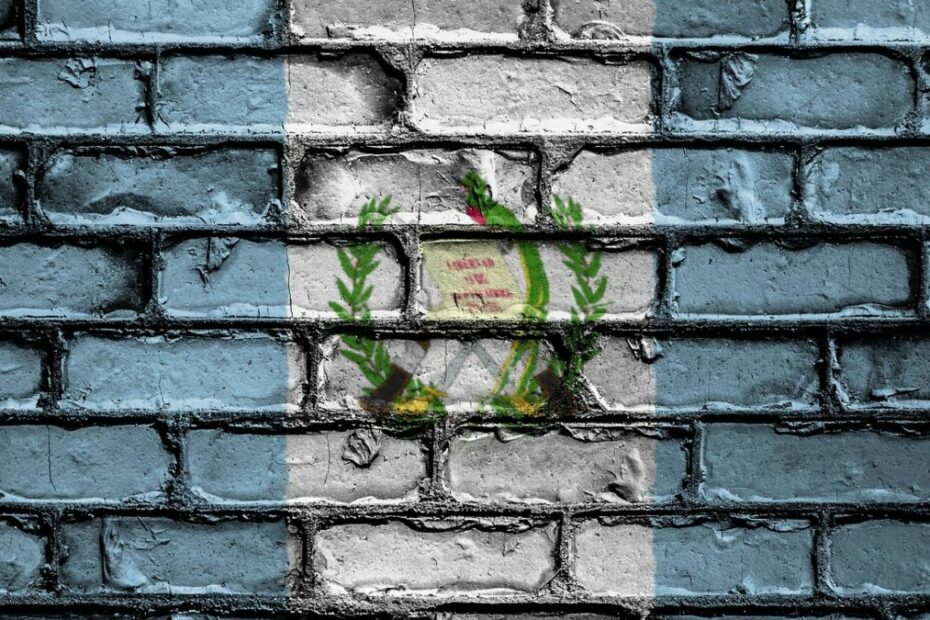In his second article observing the upcoming Guatemala 2023 election, Nestor Quixtan looks at how the courts are playing a larger part than in previous elections, as the field whittles down to three main candidates.
Elections should to be settled at the ballot. Voters cast their ballots to choose their elected representatives. That should be a given. But this year, the courts are playing a bigger role than usual in the upcoming Guatemala election.
Specifically, we’re discussing the flurry of challenges and appeals submitted against various candidates. Virtually every candidate on this year’s ballot has had to face some type of legal challenge.
Some challenges have come from organizations, while others have come from rival political factions. Some have fallen flat, while others have succeeded in eliminating certain candidates from the ballot. In one case, an entire political party was wiped out.
A look at the upcoming Guatemala elections and how people seek a change akin to 1944 when the Ubico dictatorship fell.https://t.co/3lQoFBdgQk
— Central America Living (@VidaAmerica) May 26, 2023
The case of Prosperidad Ciudadana
Prosperidad Ciudadana (roughly translated as “prosperity for citizens”) was billed as an alternative to the “corrupt” political system ruling the country. The party sought to cash in on its presidential candidate’s “charisma” and deep pockets.
Everything seemed to be going okay.
Prensa Libre, Guatemala’s most recognized mainstream newspaper, launched its first opinion poll placing Prosperidad Ciudadana’s candidate, Carlos Pineda, as the frontrunner, ahead of other political mainstays.
Political analysts and pundits began questioning the poll. Then, the challenges flew left and right. Without getting into details, a rival party challenged Prosperidad Ciudadana’s legitimacy, claiming that the legally-required general assembly was invalid. According to Guatemalan law, the general assembly is a primary in which party members vote for the party’s candidates.
The challenge was successful since the courts ruled that Prosperidad Ciudadana’s general assembly was invalid, having failed to meet specific election regulations. The ruling put Pineda out of the running. Later appeals, which have gone to the Constitutional Court, have failed, leaving a frustrated Pineda out in the cold, saying the system he wanted to change has stolen the democratic process.
#VotoNulo pic.twitter.com/IxLD90oQbB
— Carlos Pineda (@72_cpineda) May 26, 2023
Other parties and candidates have also fallen foul of various technicalities
Roberto Arzú, the son of former president Álvaro Arzú, had his participation cut short on campaign propaganda violation rules. His appeals have also gone to the constitutional court to no avail. Arzú participated in the 2019 elections but did not show a strong showing.
Another unusual case involved the MLP party. The Movimiento para la Liberación de los Pueblo (roughly: “the movement to free the people”) is a platform consisting mainly of indigenous farmers and human rights activists. The party’s presidential candidate, Thelma Cabrera, had a surprising fourth-place showing in 2019. This time around, many expected the party to contend for several congressional seats and place higher in the general election.
The party also had Jordan Rodas, the ex-human rights ombudsman. Rodas was very outspoken during his tenure against the previous and current administrations. While not a combative individual, Rodas promised to usher change into the presidential seat.
MLP’s candidacy is still under review, though it’s unlikely they’ll be included by now.
Other candidates, such as former president Alfonso Portillo and ex-congressional representative Manuel Baldizón have had their candidacies tossed out since they have both been convicted of money-laundering charges in the United States. Appeals to their candidacies were successful due to moral grounds.
Despite the two dozen or so presidential candidates, the field has thinned down to three main candidates:
- Sandra Torres. Torres, 67, served as Guatemala’s first lady from 2008 to 2011 alongside President Álvaro Colom. This is her third presidential bid, having come second in the previous two elections. She has the highest name recognition, and leads the polls as they stand right now. A third of Guatemalans, however, say they would never vote for her. Officially a center-left candidate, Torres looks over the border to El Salvador and says she wants to emulate President Nayib Bukele’s crackdown on crime in that country.
- Edmond Mulet. A diplomat and congressman, Mulet, 72, sells himself as a “safe pair of hands” in his campaign. A centrist, he was Guatemala’s ambassador to the European Union and the United States, and has worked at the UN. Mulet finished third in 2019, behind Sandra Torres and the winner, Alejandro Giammattei. His candidacy might go the way of others in this cycle, as there’s a complaint against him for alleged obstruction of justice. The constitutional court has yet to make a ruling.
- Zury Ríos. Ríos, 55, is the daughter of ex-dictator Efraín Ríos Montt. The courts disqualified her candidacy in 2019 due to a ban on former dictators or their families running for office. This time round, she’s able to run and finds herself in third place. Rios is a hard right winger, although she’s modified her stance on some social issues. Like Sandra Torres, she’s expressed admiration for Bukele’s crime crackdown in El Salvador.
None of these candidates is a stranger to the Guatemalan political arena
They’ve all been mainstays for decades, either directly or through their families. And they’ve all tried to run before. All three candidates can talk up a big game but none of them have the clout to take the election in the first round.
The main goal is to make it to the run-off leg. That’s where the next president gets to make the deals that garner support from rivals. It’s also an opportunity for rival parties to gang up on one candidate to tip the scales in favor of the other.
With Jun 25th fast approaching, the final stretch for this election’s first round is on, although a clear frontrunner has yet to emerge. With the true goal being the run-off, maybe we can expect a full-on assault after the first leg. Or maybe not. In the meantime, the courts have played a crucial role in these elections. Hopefully, the court’s involvement serves to legitimize the rule of law in Guatemala.
Nestor Quixtan is a Canadian/Guatemalan economist, linguist, and writer. He lives in Guatemala City.




